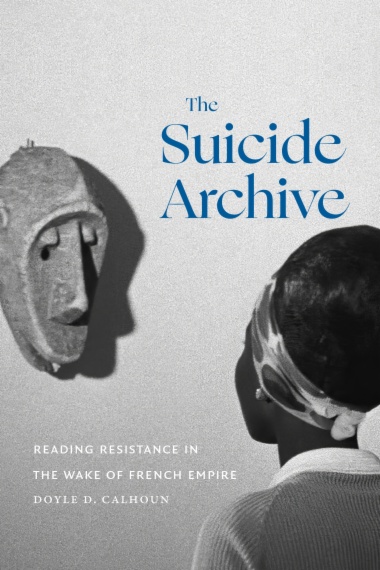Throughout the French empire, from the Atlantic and the Caribbean to West and North Africa, men, women, and children responded to enslavement, colonization, and oppression through acts of suicide. In The Suicide Archive, Doyle D. Calhoun charts a long history of suicidal resistance to French colonialism and neocolonialism, from the time of slavery to the Algerian War for Independence to the “Arab Spring.” Noting that suicide was either obscured in or occluded from French colonial archives, Calhoun turns to literature and film to show how aesthetic forms and narrative accounts can keep alive the silenced histories of suicide as a political language. Drawing on scientific texts, police files, and legal proceedings alongside contemporary African and Afro-Caribbean novels, film, and Senegalese oral history, Calhoun outlines how such aesthetic works rewrite histories of resistance and loss. Consequently, Calhoun offers a new way of writing about suicide, slavery, and coloniality in relation to literary history.
- Cover
- Contents
- Preface��������������
- Introduction. In Articulo Mortis
- 1. Choral Histories: Suicide and Slavery in the French Atlantic
- 2. Oral Archives: The “Talaatay Nder” Narrative in Wolof and French
- 3. Screen Memories: Ousmane Sembène’s Black Girl between Image, Icon, and Archive
- 4. Multiple Exposures: Geologies of Suicidal Resistance
- 5. Strange Bedfellows: On Suicide Bombing and Literature
- Conclusion. The Suicide Archive: A Social Document
- Acknowledgments
- Notes
- Bibliography
- Index
- A
- B
- C
- D
- E
- F
- G
- H
- I
- J
- K
- L
- M
- N
- O
- P
- Q
- R
- S
- T
- U
- V
- W
- X
- Y
- Z

